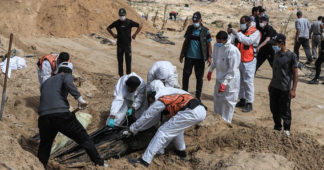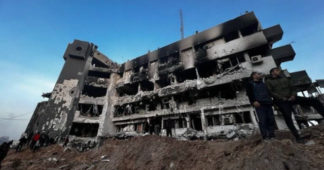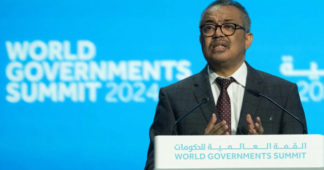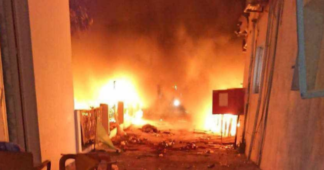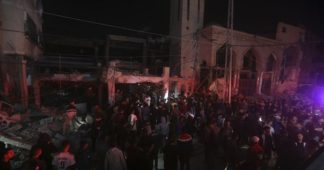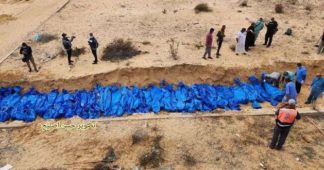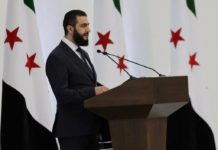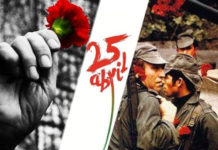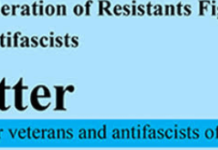Video journalist Moatasim Mortaja describes the scene at Nasser hospital, where hundreds of bodies have been discovered since Israeli troops pulled out
By Lubna Masarwa in Jerusalem
23 April 2024
Moatasim Mortaja is a Palestinian video journalist in Khan Younis, southern Gaza. Over recent days, he has been documenting mass graves uncovered in Nasser hospital, where more than 300 bodies have been discovered since Israeli forces withdrew. On Monday, his video of a woman in grey holding the recently uncovered body of her son spread across social media. Here he describes the scene.
Hundreds of mothers have come here to the Nasser hospital in Khan Younis. They are looking for their children, moving from body to body, inspecting each one with the greatest detail.
They pass their eyes and their hands over the corpses, seeing if they are wearing a shirt, a pair of trousers, perhaps some shoes that will identify their child among the 300 people found in these mass graves.
The mothers just need a simple, essential detail to recognise their sons. That was how the woman in grey found hers. The rest of his features had dissolved and disappeared.
Israel laid siege to Khan Younis for three months. Nasser hospital, the second largest in Gaza and the “backbone” of medical services in the south, became a haven for 10,000 Palestinians sheltering from attacks.
But Israeli forces repeatedly raided the hospital in January and February, completely shutting it down, arresting staff and sending thousands of homeless Palestinians fleeing.
Now, after troops pulled out earlier this month, we have discovered the Israelis buried hundreds of people around the hospital’s perimeter.
The first day the graves were discovered, 70 bodies were uncovered. The next day it was 70 more. Dead Palestinians were buried underground, left beneath trees and abandoned in the hospital’s wards.
On Tuesday, rescue workers found a few dozen more, bringing the total up to 310.
The air is heavy with the smell of death. It’s inescapable, in every corner, and worse with every body taken out of the ground.
Every time they dig, they find more corpses, sometimes in places they never expect. Sometimes they only find parts of a person, or a corpse decomposed beyond recognition.
According to the Gaza government media office, some bodies were found decapitated, or had their skin and organs removed. Children, elderly women and young men are said to be among the dead.
Rescue workers say they found bodies with their hands tied behind their backs, which the UN human rights office said “indicates serious violations of international human rights law and international humanitarian law”.
Israel denies it buried the Palestinian bodies, claiming instead that it had “respectfully” exhumed the dead searching for Israeli captives.
There are so many tears at Nasser hospital today and so much pain. It’s hard for me to find the words to describe this scene.
The feeling of seeing someone find their relative is indescribable, the way mothers cover their dead sons in a shroud and accompany them to the cemeteries.
Every sight we capture as journalists we do so silently. We can’t speak, we cry blood as we film. Our hands are shaking so much our cameras lose focus. But we start over and try again.
We remind our readers that publication of articles on our site does not mean that we agree with what is written. Our policy is to publish anything which we consider of interest, so as to assist our readers in forming their opinions. Sometimes we even publish articles with which we totally disagree, since we believe it is important for our readers to be informed on as wide a spectrum of views as possible.
